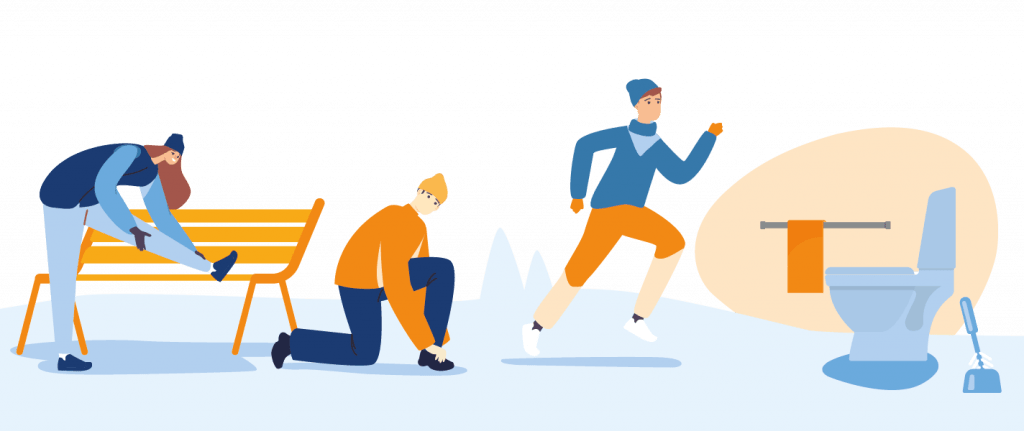Does feeling cold make you urinate more frequently?
In the second half of the year, the nights draw in, and the weather generally gets a lot colder. Besides red cheeks and a running nose, how do the cold temperatures affect our bodies? Does it cause us to wee more often than usual? But what effect does the cold weather have on our bodies?
The effects of cold weather on the body
In general, if you are young, fit, and healthy, cold weather won’t really affect you too negatively. Those who are most vulnerable to the cold weather are:
- people over 65 years old
- children under five years old
- people with long-term health conditions
- people with mental health conditions
- people with a disability
- pregnant women1
If you fall into one of these categories, you may find that you suffer more from the ill effects of the cold weather. But what does cold weather actually do to your body? When exposed to the cold, our blood becomes thicker, which may cause clotting. It also affects the body’s ability to fight off infection, making people more prone to dangerous infections such as pneumonia.2 As such, you can see it is really important to keep warm and healthy during the colder months.

Why do we urinate more in the cold?
Feeling cold comes with some risks for the body, but how does it impact your bladder health?
There is actually a phenomenon called cold diuresis, which means that cold weather makes you need to urinate more frequently. This is because, when you’re cold, your body prepares to stave off hypothermia by constricting your blood vessels to prevent blood flow to your skin and extremities. This causes an increase in blood pressure, which your body then tries to regulate by forcing your kidneys to filter out excess fluid. This then makes you need to wee more often.3
Additionally, you sweat less in the colder months, meaning more fluid for your kidneys to process, making you need to wee more.4 So, if you already suffer from a bladder issue, such as an overactive bladder or urinary incontinence, you may find that your symptoms are worse when the weather is colder. If this sounds familiar to you, iD has a wide range of continence products to help manage your condition. Approved by dermatologists, comfortable and discreet.
What is my ideal solution?

In terms of urinary tract infections (commonly known as UTIs), you may be more susceptible to them during cold weather because you may be more dehydrated. This is because there is less moisture in the air for you to absorb.5 With this in mind, we have a few tips to keep you well this winter.

Tips to keep you well in cold weather
Given that cold weather brings with it general health risks, as well as risks for your bladder health, here are our best tips for keeping healthy in winter:
- make sure to drink plenty of water
- keep active to maintain good health
- wrap up warm when you go outside
- get the flu vaccine
It’s clear that there is a link between feeling cold and health issues, such as urinating frequently, so make sure to keep warm, fit and healthy as the seasons change.
Do you want a 20% discount on your first order?
Receive incontinence tips, expert advice, and promotions by email.
Sources
1 “How to stay well in winter”, NHS, 8 November 2019, Source: https://www.nhs.uk/live-well/healthy-body/keep-warm-keep-well/
2 “How your body copes with cold weather”, Emer O’Connell, 16 January 2019, Source: https://publichealthmatters.blog.gov.uk/2019/01/16/how-your-body-copes-with-cold-weather/
3 “What is Cold Diuresis”, Arkansas Urology, 13 February 2017, Source: https://arkansasurology.com/what-is-cold-diuresis/
4 “Why do bladder problems seem worse in cold weather?”, Benenden Hospital, 3 February 2020, Source: https://www.benendenhospital.org.uk/health-news/bladder-problems/why-do-bladder-problems-seem-worse-in-winter/
5 “Bladder infection and cold weather — is there a link?”, Bhavyajyoti Chilukoti, 10 February 2017, Source: https://www.thehealthsite.com/diseases-conditions/bladder-infection-and-cold-weather-is-there-a-link-b0217-469290/
